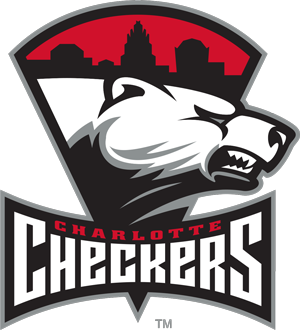There are certain caveats that come with being a team in the American Hockey League.
One of the most noticeable is the fact that AHL teams are built to develop talent for the next level, and thusly when they’re needed up top the best talent can be plucked from the lineup.
These call ups became a recurring theme for the Checkers this past season, with 14 players who suited up for Charlotte earning NHL recalls over the course of the campaign.
From a coaching perspective, constant shuffling can make it a bit more difficult to sculpt a consistent lineup night in and night out.
“We’re creatures of habit and sometimes when things don’t fall into place it can throw you into a tizzy,” said Mark Morris, who served as the Checkers’ head coach last season before recently accepting the same position at St. Lawrence University. “We all like to have predictable people around us who we know their tendencies. So to make those adjustments on the fly is quite the challenge.
“But life is full of unexpected things that happen to you and it’s how you respond to that adversity that ultimately determines your fate. I thought our guys did a pretty darn good job of being understanding of what you practice with in the morning might not necessarily be the same personnel that you skate with in the evening.”
That can also be a tough pill to swallow for AHL fans, seeing their team’s most competitive players scooped away. But while it might be tough to see at the time, those moves are almost always born out of necessity.
Injuries to the NHL club are more often than not the catalyst to such recalls. For the Hurricanes, the injury bug bit early and often. Losing free agent acquisition James Wisniewski in the first game of the season forced a hole on Carolina’s blue line that was filled in tandem by Jaccob Slavin and Brett Pesce, who otherwise might have spent the majority of their rookie campaigns with the Checkers. An injury up front midway through the season paved the way for Phil Di Giuseppe to become a full-time NHLer, while more setbacks, coupled with the NHL trade deadline, caused the rotating carousel of recalls that made up the latter portion of the season.
While it can be a frustrating system at times, the benefits of those recalls come in twofold: the Hurricanes get to see up close the talent that they have in their system, and perhaps more importantly, the prospects get an added confidence boost.
Those call ups can come in a variety of scenarios.
One of the biggest names logging miles back and forth between the AHL and NHL was Derek Ryan. The Checkers captain led Charlotte throughout the entire year, propelling the offense with staggering consistency. A 29-year-old in his first pro season in North America, Ryan earned his first NHL recall in late February, having immediate success with a goal in his debut and clinching himself three more call ups before the season concluded.
After grinding through grueling AHL season and the unique path he took to get there, finally getting that NHL shot was an important step for Ryan.
“It’s a big confidence boost for me going forward in my career,” said Ryan after the season. “I know that I can perform and contribute in any league that I play in, whether it’s the NHL or Europe or the AHL, it doesn’t matter. I know that my game translates well to have success at those levels, so that makes me feel better confidence-wise moving forward with my career.”
“I was so proud of him to get the opportunity to be rewarded for all the work that he did by playing in the NHL and scoring,” said Morris. “It makes you feel really good as a staff to see a guy realize him dreams. You know all the hard work that he’s put in to get to that point in his career.”
For a young talent like Sergey Tolchinsky, who at times struggled to grasp the pro game with Charlotte, a call up can be a reminder of what can lay ahead if you embrace the system and structure.
“It helped a lot,” said Tolchinsky of his recalls, the first of which came in late March after a particularly revelatory stretch with the Checkers. “Not just with the confidence, but I learned a lot. Even if it was just two games, it helped a lot. Now during the summer I know what I need to get ready for and what I should improve for next season to develop myself for the NHL. I’m going to work on a lot of stuff.”
With Brendan Woods, who made his NHL debut the season before, the recall helped push him at the AHL level as well when he returned to the Checkers.
“You come back with a little swagger,” said Woods. “You feel a little better about yourself. You hope that you can help the team out.”
Another important aspect of the recalls is their role as a reward. Patrick Brown, who began his rookie season in the NHL for few weeks in 2014-15 before joining the Checkers, erupted this season by more than doubling his point production from a year ago. Those strides caught the eyes of the Carolina management, and when the need arose for a forward up top, Brown earned the call.
“It’s good to see that I’m working hard down here and it pays off up there,” said Brown.
And then there’s Trevor Carrick, who became the Checkers’ best blue liner for nearly two season before getting a crack at the next level, an experience that he will use to build on for next season.
“Getting the call was huge,” said Carrick. “Seeing that [Pesce and Slavin] can do it in their first pro seasons gives you the confidence that you can too. For me I’m going to try to get better every day and have a good summer, get bigger and stronger, and come into next year with a good attitude. Hopefully I can do it a couple more times next year as well.”





